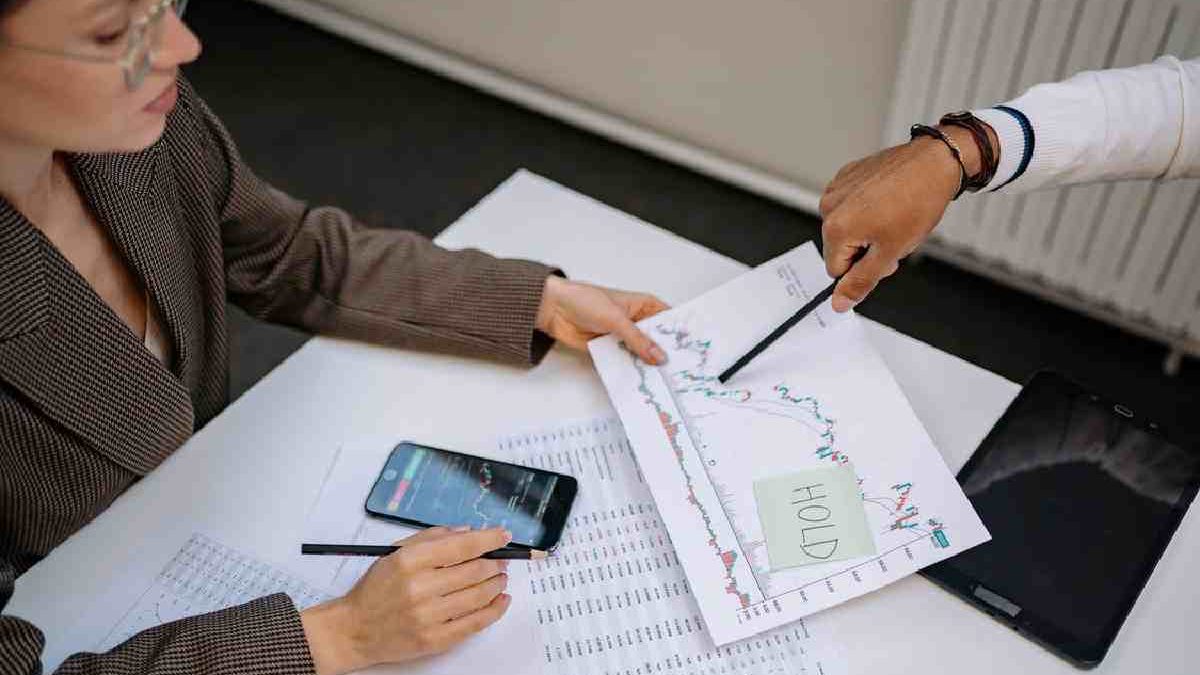Table of Contents
Information
A trading desk is the physical location where transactions for buying and selling securities take place. Depending on the type of financial institution, trading desks may be filled with traders trading for their own accounts, with traders acting as agents to match the buyers. and retailers, or some combination of the two.
Trading desks are found in many financial institutions involved in executing trades in markets such as equities, mutual funds, futures, commodities, and currencies. These companies are very important to provide the market share.
A business seat may also be known as a sales seat.
HUMAN THINGS
A trading desk is a designated space within a financial institution where trading activities take place.
Professionals in the sales chair, from home-owner buyers to sole proprietorships.
Trading tables are often divided by asset class or security type, such as specialists in equities, fixed income, forex, commodities and/or trends.
Understanding Trading Desks
Traders who work in the financial market usually gather in a room known as a shop or shop. The business floor consists of desks that share a large space. Each desk, commonly referred to as a business desk, is specialized in some form of security or market segment. Trading desks are where the buying and selling of securities takes place within a financial institution.
Before the 1970s, many banks divided their capital operations into several different divisions across different regions. These firms began supporting these sectors in the 1970s following the launch of NASDAQ, which required all investment firms to have equal trading seats.
1 Today, many property managers outsource their stores to these large companies.
Licensed traders are specialists in a given type of investment, such as equities or commodities and manage trading desks 2. These traders often use electronic trading systems and brokers to identify the best prices for their customers.
Those working at the sales desk receive customer orders from the sales desk, which is responsible for recommending trading ideas to companies and investors. In addition to trading activities, trading desks help clients organize financial products, view opportunities, or negotiate agreements between companies and investors.
How Trading Desks Work
Business desks generate revenue by paying for services and businesses they interact with. For example, a hedge fund may operate from an equity trading desk at an investment bank and pay a small fee for each trade. In some cases, dealers can operate their own trading desks by becoming members for their clients’ trades. These transactions may not reach the interbank market and may be at the end of the dealer’s pool.
There are many different types of trading desks, depending on the security being trad. Often, these desktops are separate and can be in some central switch.
A type of business seat
Some common trading tables include:
Equity trading desks handle everything from equity trading to aggressive options trading.
Fixed income trading desks handle government bonds, corporate bonds, and other bonds and bond instruments.
Foreign exchange companies facilitate the trading of two different currencies by acting as market makers. They can also be involved in marketing activities.
Commodity trading tables are focuse on agricultural products, metals, and other commodities, such as oil, gold, and coffee.
Trading desks specialize in a variety of systems, such as options, futures, forwards, and swaps.
Each section can be divid into the following areas. For example, bond funds are a very broad category and can include anything from high-risk US stocks to high-risk, low-quality corporate bonds—also known as junk bonds. Larger investment banks may divide their trading desks to specialize in narrower sectors within these key sectors.
Many brokers also offer trading tables to their clients, especially in the foreign exchange and equity day trading markets. With the ability to make transactions quickly, these sellers distinguish themselves from other sellers who act as intermediaries. Many large financial institutions have their own trading desks to help their internal and external clients place orders.
Learn the basics of trading and investing
Want to learn more about trading and investing? Regardless of your learning style, there are plenty of courses perfect to get you start. With Udemy, you’ll be able to choose courses taught by world-class experts and learn at your own pace, with live access on mobile and desktop. You will also be able to learn the basics of day trading, option trading, and more. Find out more about Udemy and get start today.
Related processes
What is the Market?
“Trading floor” refers to the area where trading activities in financial instruments, such as equities, income, futures, etc., take place.
What is a Dealing Desk?
A brokerage firm is a place where traders make and trade financial instruments such as forex, equities, options, commodities and other financial assets.
Owner’s Business Description
Proprietary business refers to a financial institution or bank that invests money for direct marketing purposes instead of receiving services and fees from trading on behalf of customers.
Financial markets
The financial market refers to any marketplace where the trading of securities takes place, including the stock market and the bond market, among others.
How investment banking works
An investment bank is a financial organization that acts as a participant in complex corporate transactions such as mergers and acquisitions.
Blotter Description
Ablotter is a record of trades, including details of those trades, made over a period of time (usually a single trading day).

